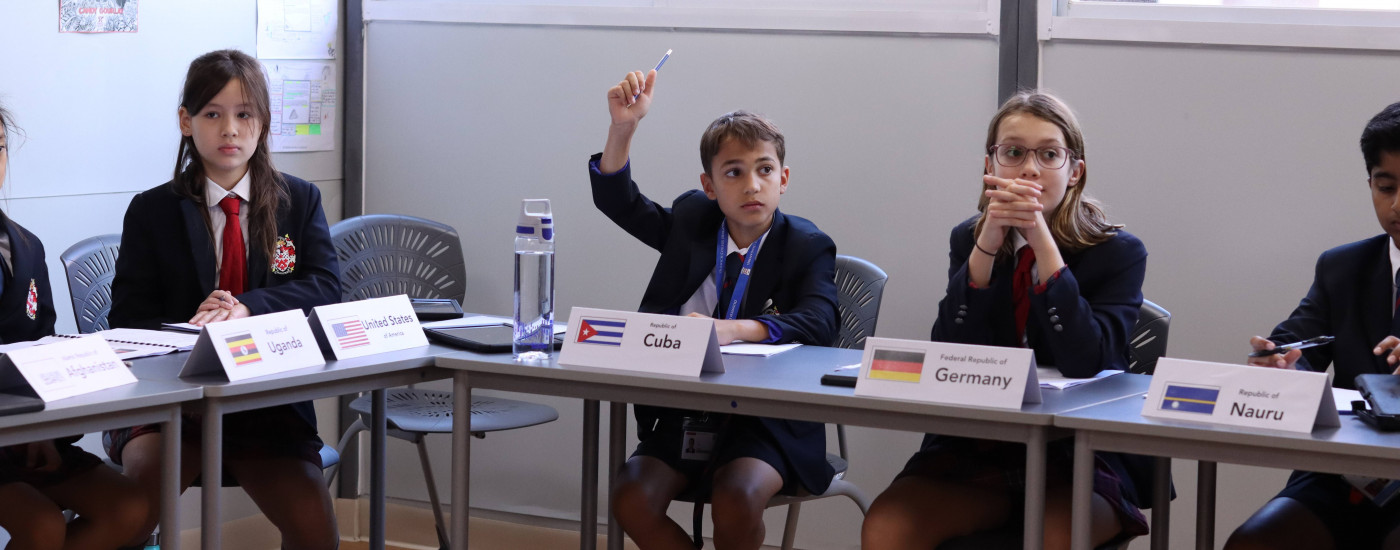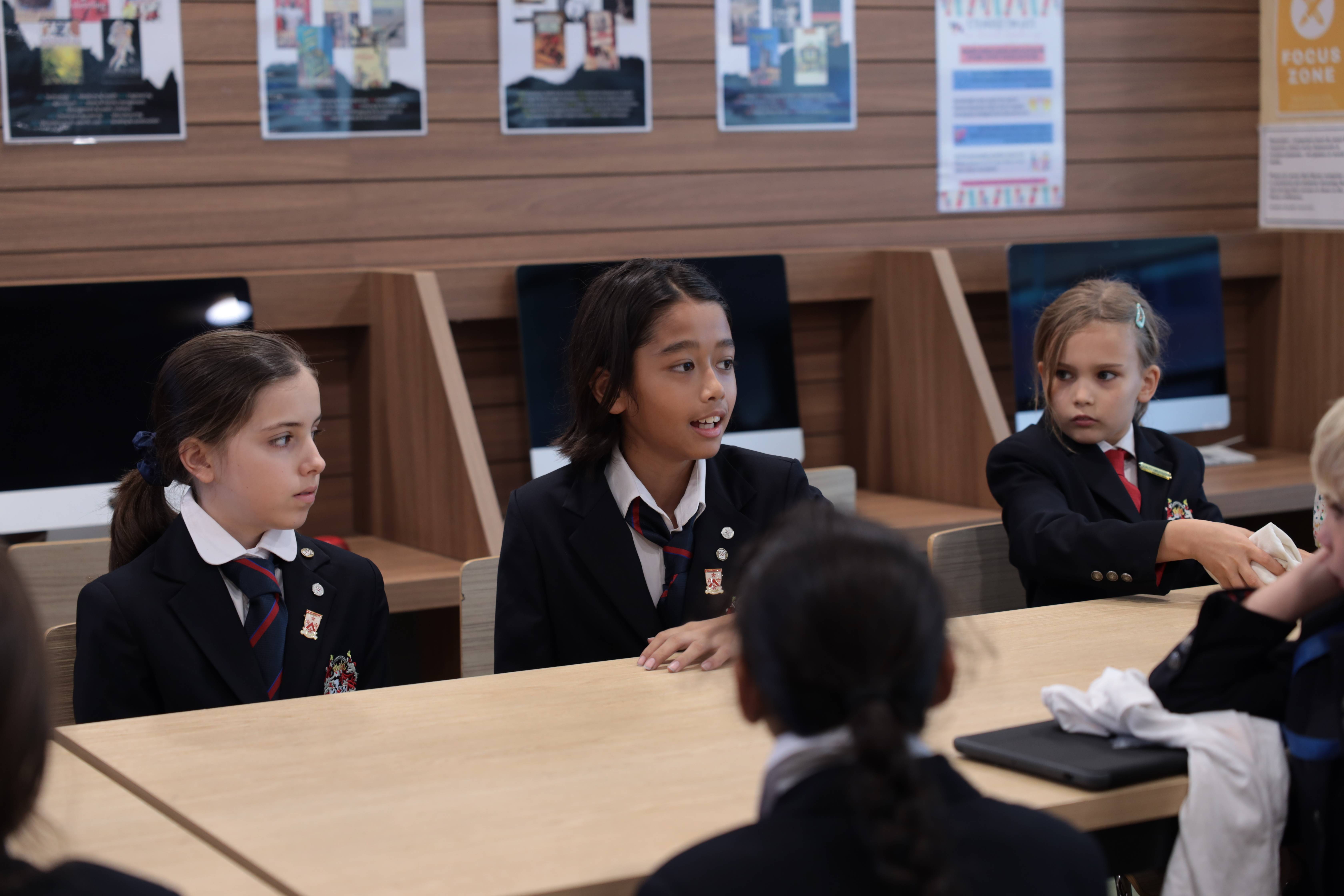Significance of Social Justice at Dulwich College (Singapore)


We build a community where each individual matters, respecting and upholding the rights of everyone.
In our ever-evolving global society, international schools occupy a unique space where diverse cultures, values, and perspectives converge. As these schools shape the next generation of global citizens, the inclusion of social justice education becomes crucial. Here's a dive into why teaching about social justice is essential to us at the College.
Firstly, we believe it is critical to foster Global Citizenship as an idea; international schools are microcosms of the global community. Students from diverse backgrounds bring with them experiences, beliefs, and traditions. By teaching about social justice, schools can nurture a sense of global citizenship, where students recognise their interconnectedness and shared responsibility towards global issues.
At the heart of social justice is empathy – the ability to understand and share the feelings of another. In diverse environments, misunderstandings can arise from cultural differences. Social justice education helps students see beyond their personal experiences, fostering a culture of respect and mutual understanding. Our compassionate systems framework is the key pedagogy used to develop empathy in this area. There are specific tools that help to question cultural assumptions, like the ladder of inference.
One aspect which can be challenging in social justice for us at the College in Singapore is that we are all in privileged positions in a global context; we are not embarrassed by this, but it does bring with it a responsibility. Our students are shielded from the harsher realities faced by many worldwide. Social justice education in our classrooms, which highlights this, confronts these disparities, urging students to acknowledge their privileges and understand the systemic inequities that persist in societies.

Beyond awareness, it's essential for students to feel empowered to challenge and rectify injustices. International schools can be breeding grounds for future activists, policymakers, and change agents. By providing them with the tools, knowledge, and confidence, we prepare them to take on injustices in their communities and the world at large. Our community service programme and the opportunities it provides are the primary vehicle for opportunities in this area for students. Like all our guiding statements, this provides vital learning opportunities to develop academic skills.
Analysing complex social issues requires critical thinking, a skill that is invaluable in today's world. Social justice topics prompt students to question societal norms, analyse historical contexts, and evaluate the impacts of policies and practices on marginalised groups. The inclusion of social justice in our curriculum adds depth to academic discussions. Whether in literature, history, or social studies, exploring themes of justice, equity, and human rights enriches students' academic experiences and provides real-world context to theoretical knowledge.

Hands-on involvement is a critical component of our teaching methodology. Our community action projects allow students to tackle real-world issues, from local community challenges to global crises. These projects encourage students to work collaboratively, understand the complexities of societal problems, and strive for solutions that ensure equity and justice. The Creativity, Activity, Service (CAS) Programme is an integral part of the International Baccalaureate Diploma Programme (IBDP) offered at Dulwich College. CAS encourages students to take a proactive role in their communities, emphasising experiential learning. Through CAS, students engage in various projects that align with social justice values, further deepening their understanding and commitment to creating a more equitable world.
Some practical ways we have been exploring social justice with the students would be:
- The Year 9 Inspiration week, where we worked with Inspire Citizens to take our students on a journey from ‘Empathy to Impact’. It culminated in a film festival that showcased the best of the films that groups made on the Global Citizenship theme they were most passionate about, many of which related to Social Justice.
- The Call to Action Impact Awards allows students to connect with communities and organisations that relate to social welfare. This year’s winner, Wheels of Hope has an ambition to mend and recycle old bicycles to then be donated to families in need of affordable transport solutions in Singapore. The second runner-up in the initiative was Art Unseen – here, the student wants to raise awareness of the challenges visually impaired artists face by organising art exhibitions and auctions.
- We have students going to facilitate DOT’s IT Literacy Programme, which aligns with their vision to empower women to be financially independent by equipping them with basic computer skills so that they are better qualified to apply for jobs and better prepared for the workforce.
- CAS projects connected to Habitat for Humanity and Safe Water Gardens. For the latter, at the end of last term, we had students and staff volunteering time to support the charity in cleaning and renovating HDB homes for the elderly.
At the College, we believe education is not just about academic achievements; it's about shaping character. By emphasising social justice, we hope to instil values of fairness, equity, and justice – values that students will carry with them throughout their lives. Social justice is more than just a theoretical concept; it's an ingrained part of our ethos. Perhaps our children can do a better job of stewarding this world than we have.






